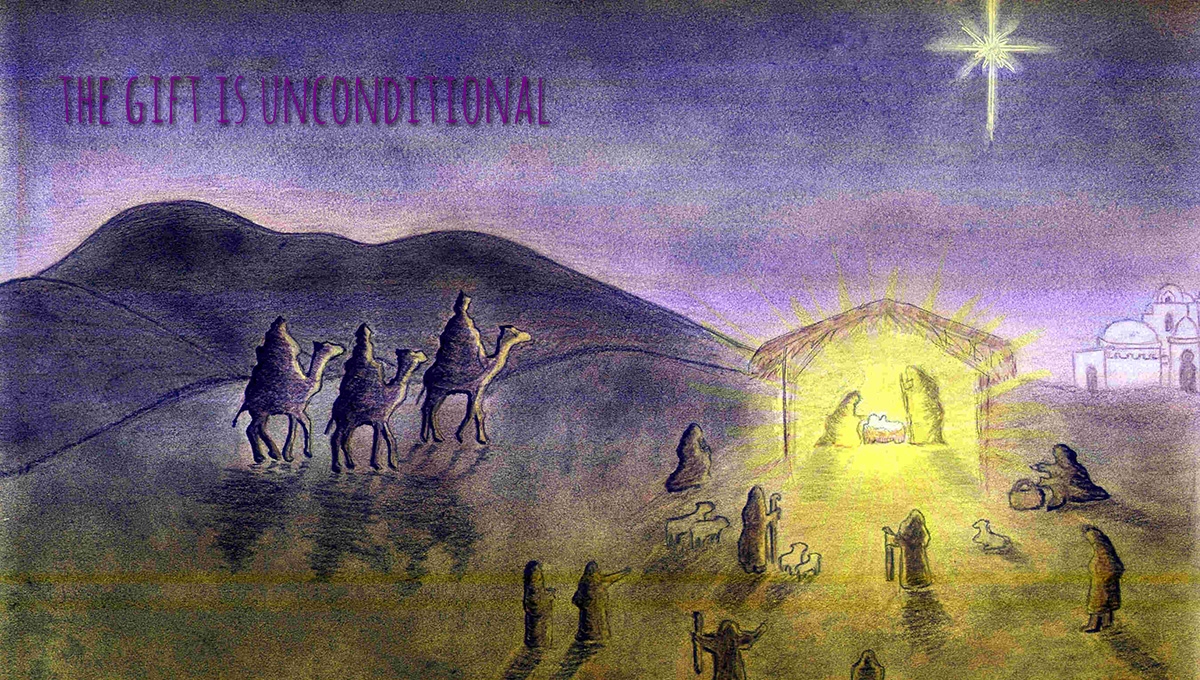We have all heard the words: “It is more blessed to give than to receive.” But… it might also be harder to receive a gift than to give a gift.

“Gift-guilt”
There is an interesting article in Psychology Today that deals with the indebtedness of “gift guilt”. It describes the sense of feeling obligated to give something in return. But sometimes the urge to give something back can change a gift into a contract. If you do this… then I must do that… pay back the gift.
Why? There can be many motivations. The article offers at least five reasons
1. Defense Against Intimacy
2. Letting Go of Control
3. Fear of Strings Attached
4. We Believe It Is Selfish to Receive
5. A Self-Imposed Pressure to Reciprocate
The gifts of the Magi
The “gift guilt” reflex is actually not new. In the ancient world, gifts were rarely exchanged between people of unequal status. In the unlikely circumstance that a ruler gave a gift to a peasant, the recipient was expected to give something back as a debt of gratitude — in the form of loyalty, a tribute or a tithe. Gifts were used to secure power and privilege for benefactors, the very definition of quid pro quo.
In that light, the gifts of the Magi were unheard of at the time of Jesus. When the three kings or wise men brought gifts to Jesus, they turned gift-giving on its head. The wise men brought their gifts with no expectation of repayment, with no debt of gratitude attached. In the world birthed in that stable so long ago, the kings joyfully leave their gifts to the poor and go away empty-handed. No strings attached. No more quid pro quo. No more debts of gratitude, only gifts freely given.
Is not that the mirror of God’s gift to us in the person of Jesus. The Magi’s gift and the gift of the Word become flesh were gifts freely given without strings attached.
Vincent’s gift of love
What about the gifts we give to those who are poor and marginalized? Do they activate any of the forms of “gift guilt” mentioned above? It seems Vincent offers us some thought on that.
One of Vincent’s frequently cited “quotes” reads “It is only for your love alone that the poor will forgive you the bread you give to them.” The catch is that it’s not a quote. It comes from the Jean Anouilh’s screenplay for the 1947 film, “Monsieur Vincent.” Maybe in light of the insight into subversiveness of the gift of the Magi, we can gain new insight into why the words are so often attributed to Vincent.
Vincent, and with him Anouilh, had a profound sensitivity to “gift guilt” we can unwittingly engender by our gifts. Or, more accurately, what people sense about the strings attached to our gift giving. Vincent so often showed a profound respect for the dignity and sensitivity for those he served. And is not this something that Pope Francis is so sensitive to. People sense that he has “first loved them”. Unconditional love is a gift without any limitations, love without conditions.
The Magi mirror the utter gratuity of God’s love. If we are in the image and likeness of God we are called to be utterly gratuitous in our love. After all, Jesus gave us the love that was the eternal Word. He did not pay the Father and the Spirit back. He freely gave the love he experienced in the community of the Trinity. He taught us how to pay it forward to others by sharing the good news. Is that not what evangelizing others is about?
Questions
- Do we accept that God’s love is unconditional?
- Do we still try to earn God’s love in the guise of paying it back?
- Does our gift of love for another shine through as unconditional?





Thank you! Very thought-provoking!